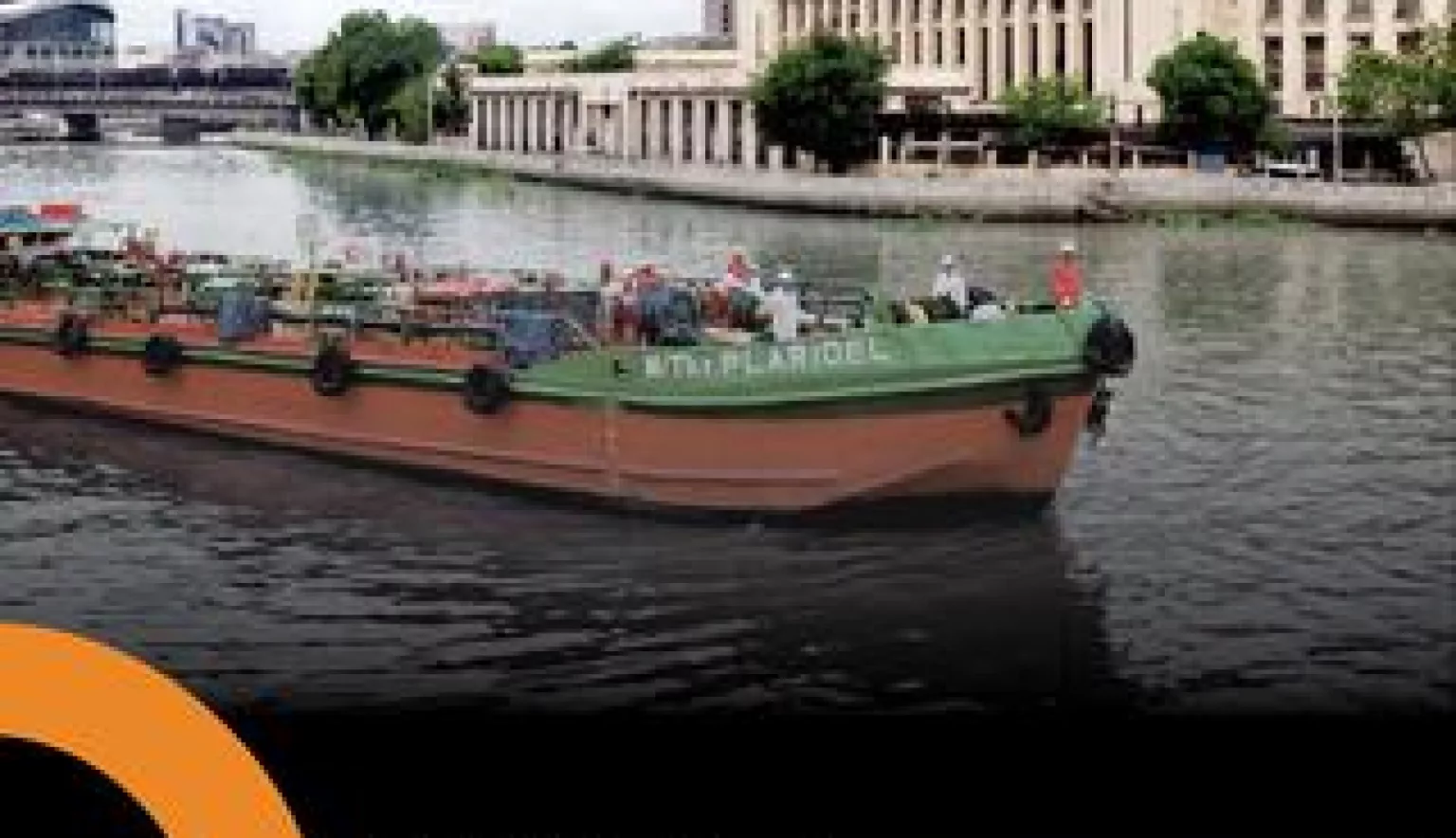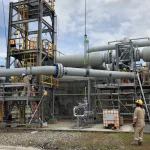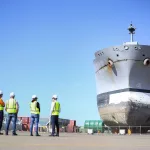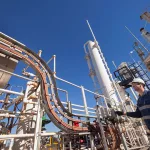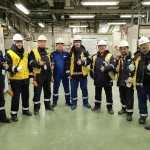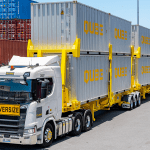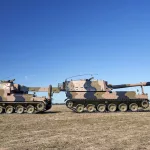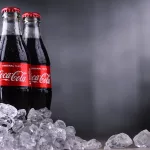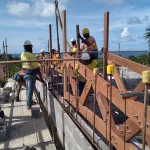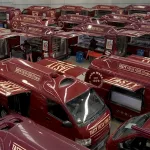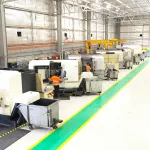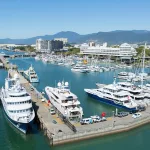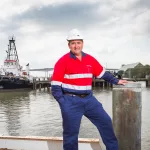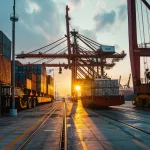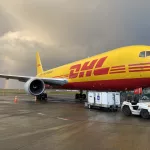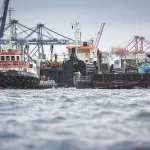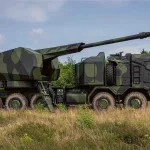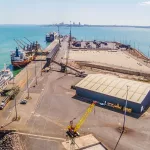Petrotrade, a faculty of Herma Group, remains the only company in the Philippines to offer 24/7 bunkering services.
FUELLING THE PHILIPPINES
With shipping and sea-freight business in the Pacific Ocean increasing year on year, the need for a greater array of high quality services has risen. One company in the Philippines has stepped up and offered a new approach to marine and bunkering services in Asia: on-demand, 24/7 bunkering services. The Herma Group was formed more than twenty years ago by Herminio S. Esguerra who started a petroleum hauling business with one rented barge – The Herma I. the Herma Corporation, then with only ten employees, started operations in 1985. The company provided hauling services, ferrying refined petroleum products from a refinery in Bataan to wherever it was needed. With demand for the Herma group services growing year on year, a new facility was added to the roster. Petrotrade Philippines inc began offering round the clock on-demand bunkering services to any point in the archipelago and have remained the only company in the Philippines to currently offer such a service.
IDENTIFYING THE NEED
Benedict Ibuyan, Managing Director of Petrotrade Philippines Inc (PPI), explains that the company was formed when the need for a dedicated provider of bunkering facilities was identified in the Asia petro-services market: “the bunkering services industry in the Philippines in the 1980’s were owned and operated by oil companies in the region, who offered bunkering as a side business as opposed to a main revenue stream. the biggest problem was that the service was only available between 8am and 5pm and would only be delivered if the company could spare a vessel to send the product out to you.” With the shipping industry running 24/7, many vessel captains began to turn to Petrotrade as their new supplier for fuel. With the Philippines situated between the shipping routes for Japan, Australia, Indonesia and Korea, Petrotrade quickly became the go-to company for bunkering services, as it served as a perfect midway point between many of the routes. Since 1991, the bunkering services offered by Petrotrade have grown significantly. From just one single barge offering support to the shipping industry, the company now have a dedicated fleet of vessels all of which are double hulled, SIRE-compliant, ISPS certified and ISM classed by the Philippine Maritime Industry (MARINA).
FUELLING THE MARKET
With the shipping market seeing strong throughput in the Philippines, Petrotrade have been quick to work with their sister companies in the Herma Group to ensure that they maintain a strong grip on the fuel market. Herma Shipyard Inc (HSI) – located in Mariveles, Bataan – have recently finished building a new tanker for their sister company Herma Shipping Transport Company (HSTC) named the M/T Matapat, the third such tanker built in the shipyard. Herma Shipping has 17 tankers and barges, which Petrotrade can also use when needed. The M/T Matapat will be initially used by Chevron to transport its fuel from its terminal in Batangas to the various oil depots in the country. Having new tankers built by a sister company is keeping Petrotrade ahead of the competition. Due to current legislation and regulations, companies cannot buy a new tanker and ship it to the Philippines without the consent of the other companies operating in that area. However, you can build a new vessel or utilise one from your parent company in the country and use it right away. “By utilising both the HSI and HSTC, we have a strong advantage over our competitors, as we still abide by the laws governing new vessels in the Philippines and can still have new vessels. the vessels built for HSTC are tested to the highest international standards and will be a welcome addition to the fleet,” explains Ibuyan.
ROCKING THE BOAT
A leading local oil company recently decided to upgrade their refinery. This upgrade enables them to further refine their intermediate Fuel oil (IFO) to lighter ends such as diesel and gasoline. Since the bunkering market mainly uses intermediate Fuel oil in its original form, availability for the bunkering market is therefore compromised. With this development, prices for the IFO for the use of foreign ships, is expected to sky-rocket, as fewer avails are expected from here on. Being a long term change in availability of fuel oil, bunkering players in the Philippines are expected to take a hit, given that prices in the country would sharply increase. These players, such as Petrotrade, run the risk of losing its customers to other cheaper ports in the Asian region. The challenge therefore lies in addressing this sourcing problem within this year.
AN INTEGRATED SUPPLY CHAIN
In the early days of Petrotrade’s operations, the company predominantly bought their fuel from different oil companies in the Philippines and then sold it on to the various vessels from the back of their barges. This proved to be both costly and time consuming and as mentioned earlier, the supply was limited to Oil Company working 8am-5pm hours only. Petrotrade then found themselves being squeezed out of the market by the oil companies limiting the amount of the fuel available to the company as there were bigger and more valuable commodities to be sold than marine fuel. With the dwindling amount of fuel on off er, Petrotrade made the bold move to source their own fuel from singapore oil companies as it was cheaper and they could buy it in larger quantities. “With our main product being offered in lower quantities from Filipino oil companies, we made the decision to work with Singapore-based oil companies and source our fuel from them. Sometimes it does pay to make a bold move in the market and that can be the difference between a company failing and a company making a profit,” cites Ibuyan.
Success is put often down to a single reason or action that moved the company forward during tougher times. For Petrotrade, it was always clear from the outset that the factors that would make them a success were simple: understanding what the market wants, and delivering that requirement. “From the outset, we have strived to listen to what the market needs and then deliver that need before our competitors do. it is not a secret or some magic action; it is simply knowing your market. our industry is very much based on strong relationships between clients and suppliers, so by giving the clients what they need when they need it, we maintain a good relationship that will serve us well for many years to come,” concludes Ibuyan.

